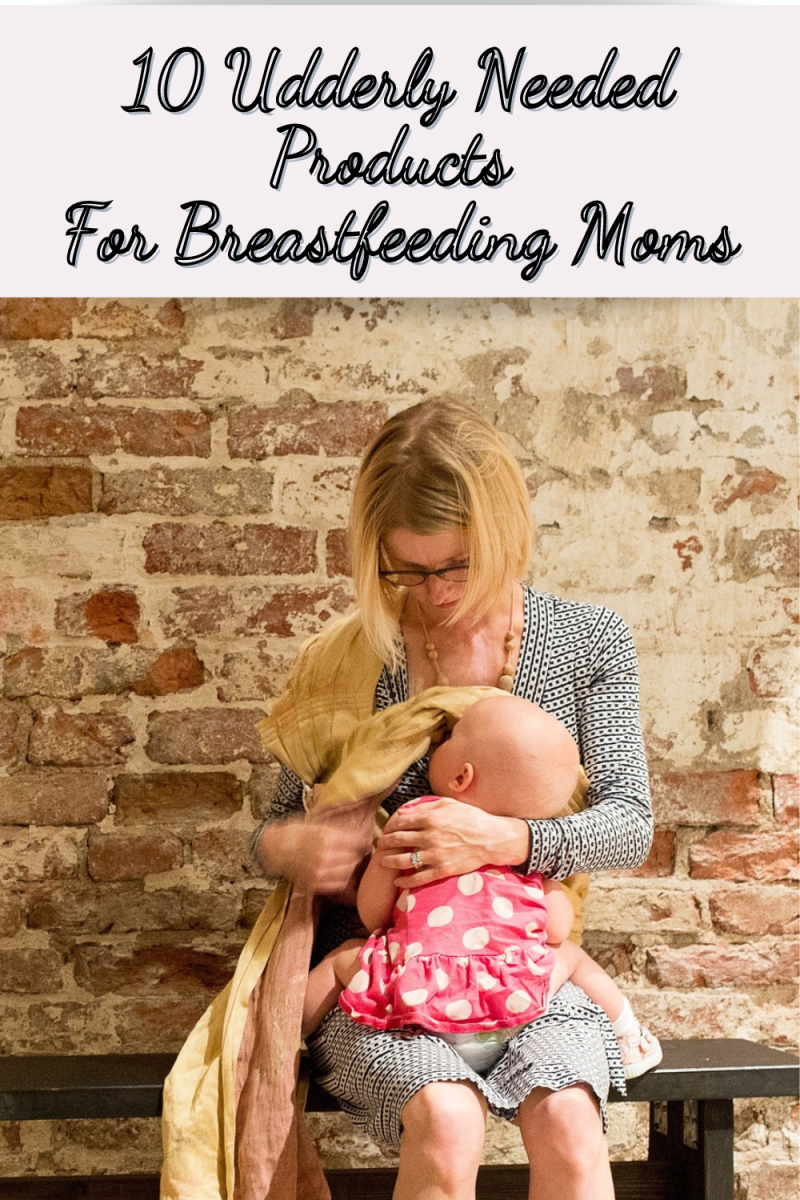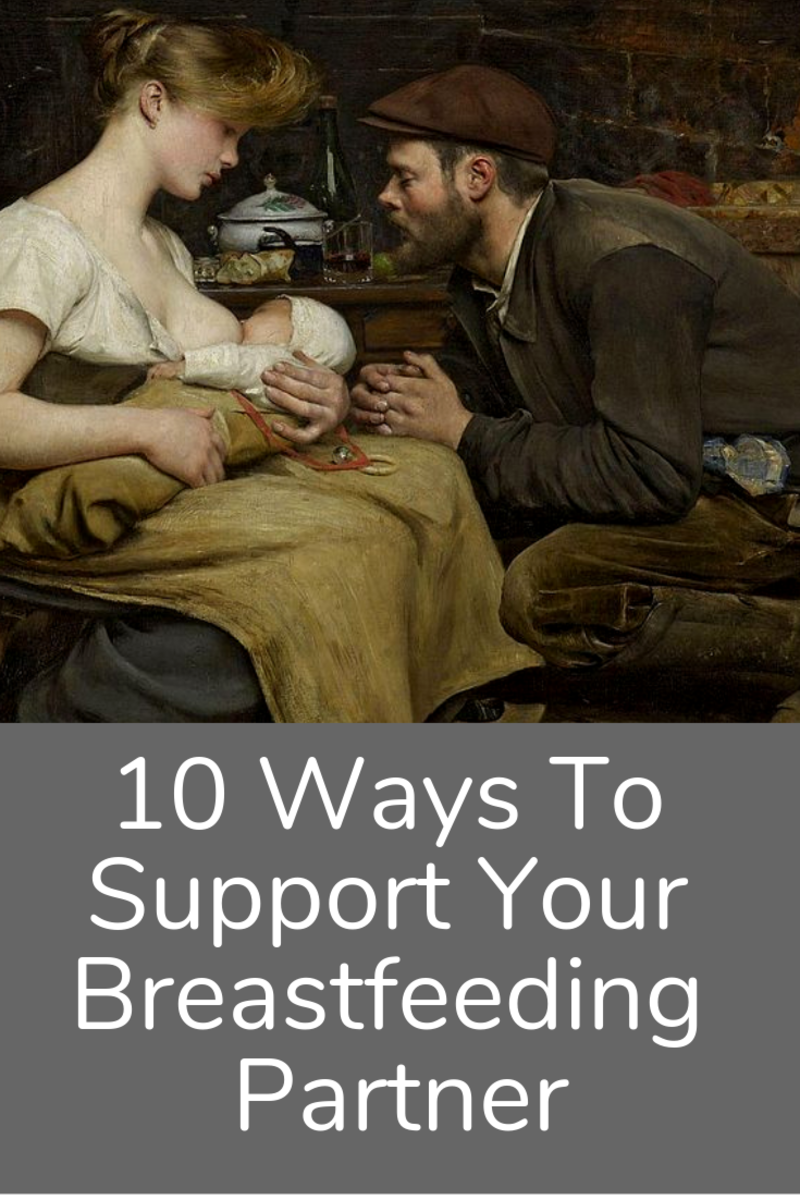Breast is Best
Perhaps I've simply taken it for granted that everyone knows that breast feeding is the best start any mother could give to her child.
It would appear that I thought wrong. I guess I have been privy to this knowledge because of my studies in health science and nutrition dating as far back as high school. Had I taken the path to a different vocation, perhaps I, too, would be ignorant of this fact.
What surprised me was the number of my own family members that displayed a strong predisposition for formula over breast feeding. There was even one person who discouraged breast feeding in favour of formula (as shocking as I found that to be). Some adopt a mixed view of combination feeding (e.g. alternating between breast milk and formula).
Whilst it is not my place to dictate whether a mother should or should not breast feed her baby, I hope to provide information that would at least dispel any misconceptions about breast feeding. Every mother has a unique and blessed ability to nurture and comfort her baby during its first year of life outside the womb. I find it distressing that some mothers are deprived of this special privilege because of misinformation.
Getting Off to the Right Start
Despite being a natural progression of life, breast feeding is not necessarily as instinctive as one would expect it to be. That said it is a very rare case for a mother to be without breast milk to feed her baby. In most cases, it is usually a lack of support and understanding that prevents a mother from breast feeding.
That some mothers simply do not have enough milk to feed her baby solely on breast milk alone is also incorrect. Breast milk is produced on demand and the best way to increase milk production is to allow the baby to suckle directly from the breast. It is the baby's suckling action that encourages further milk production. No suckling, no milk.
Since I've been breastfeeding my son for over a year, I find it truly amazing to hear that some of the most ardent people propagators of the myth of "no milk" are people who have never had a baby, let alone breastfed one! I believe that a lot of mothers are misled into believing they have no milk from lack of information, support and the convenience of others.
If you don't breastfeed your baby, how do you know you don't have milk? Because in the first few days after delivery, the breast does not produce milk. It produces a substance called colostrum. Colostrum is rich in all the necessary nutrients required by a newborn and is very easy to digest. It offers protective antibodies for the newborn and also helps prevent jaundice. It is also one of the most important food to feed a newborn baby and I have often recommended that if a mother doesn't wish to breastfeed, at the very least, offer your baby colostrum for that first few days of his life - it is the best start you could ever give your baby.
Colostrum is thick and honey-like in consistency. The quantity produced is a lot less than the breastmilk that follows in the days to come. It can be quite difficult to "see" colostrum, which is one of the reasons why a lot of mothers get led into the false belief that they have no milk. Colostrum also has a very high fat content so baby doesn't require very much of it to feel full.
A common concern among parents during this early stage is that the baby may not have enough to eat. However, we should be mindful that the size of a newborn's stomach is about the size of a grape. Additionally, in the first twenty-four hours of life, a baby usually doesn't need much because his stomach is still full from the nutrients provided to him through the placenta while he was in the womb. Add the fact that colostrum is very filling and you should be able to rest easy that your baby won't starve.
In the early days, it is important for the baby to have frequent feeds as it sets the stage for normal milk production. Generally, the more often you feed, the better your milk production. Do not listen to anyone who says, "Why don't you give the baby formula until your milk comes in?" When the baby is full on formula, he will be less inclined to suckle at your breast. If baby does not suckle, your body will not receive the hormones to produce milk.
Each mother has an amazing and unique ability to cater to her baby's needs producing breastmilk in sufficient quantities and quality for her baby. Her breastmilk is specially formulated for her baby and its nutrient levels change with her baby as her baby grows older. Introducing formula milk into this relationship upsets the balance and leads to insufficient milk production which can spiral out of control as you introduce more and more formula to "make up" for the shortfall of breastmilk.
Most of the literature states that colostrum will be replaced with regular breast milk by about the third day, but in my experience, my matured milk only came in by about the fifth day. It is important not to worry or panic about not having milk or that your baby will go hungry because stress is the only thing that can affect your milk supply.
Having been through it all, now, I would say that one of the best things you can do for yourself in the early days is assign someone to deal with all the negative influence of "well-intentioned" friends and family who try to dupe you into feeding your baby formula. Make it clear that anyone who upsets you or even suggests that you should offer formula to your baby will be banned from visiting you or the baby until you say so (or at least until you and baby are well-established nursing partners). Learning how to breastfeed your baby is tough enough without the added stress of negative people and what got me through the early days was a great lactation consultant and three very supportive friends who were breastfeeding Mums.
To encourage breast feeding, it is advisable not to offer the baby any artificial pacificers for the first six weeks (there is some variation to the timing between sources), therefore, no bottle feeding of any sort. At this time, the baby is also learning how to breast feed. The introduction of pacifiers can cause confusion because the suckling action is different from that of the breast.
There are additional issues with the introduction of a bottle too early - anything before 4 weeks is definitely too early, although I've seen recommendations to wait until 6 weeks. Babies are intelligent and they soon discover that it is far easier to retrieve milk from a bottle than it is to suckle from a breast. This is the fastest way to destroy a mother's milk supply. Although there are cases where babies happily interchange between bottles and the breast, this is not always the case, especially when the baby is very young. Where bottles are concerned, I would proceed cautiously.
A baby that is exclusively breast feeding has no need for water, because breast milk provides all the necessary fluids. The initial part of the feed is called the foremilk which is good for quenching thirst. If the baby is hungry, it will stay on the breast for longer to get the hind milk which is fatty and more filling. Neither are hiccoughs a reason to feed baby water because hiccoughs neither harm nor distress your baby (remember he's been having hiccoughs ever since he was in your womb - my son would have regular hiccoughing spells and I would feel this pulsing sensation in my belly).
Most of the information on breast feeding encourages mothers to breast feed exclusively for at least the first six months. However, there is a lot of evidence pointing to continued benefits for babies who receive breast feeding for longer.
Benefits of Breastfeeding
A summary of the benefits of breast feeding:
- It's nutritional - with the right constituents for human development
- The babies have fewer illnesses because of the mother's antibodies being passed through the milk
- Breast fed babies are less likely to develop allergies later in life
- Breast fed babies have less risk of developing obesity later in life
- More research is demonstrating that breast fed babies have more optimal brain development
- Breast feeding lowers the risk of SIDS (sudden infant death syndrome)
- Breast milk contains lots of good bacteria
- Breast milk straight from the breast is sterile
- Breast milk contains at least a hundred additional ingredients that formula does not
- No baby is allergic to their mother's milk (although they may be allergic to some of the foods she eats, but this is easily rectified if the mother eliminates that food)
- The suckling action allows the baby to develop strong jaw muscles that encourage the growth of straight and healthy teeth
- Breast fed babies are also less likely to develop tooth decay compared to bottle fed babies
- Babies who are premature or born with medical problems have also been shown to benefit from breast feeding
- Babies who are breast fed have a stronger bond with their mothers. Some studies have shown that breast fed babies grow up to be socially more independent than their formula fed counterparts
- Babies who are breast fed tend are generally held more closely than bottle fed babies. The skin to skin contact between mother and baby provides comfort for the baby that has just been removed from the protective environment of the womb.
Breastfeeding is not without it own difficulties - especially in the early days, but I would think that given the overwhelming benefits, it is worth any inconvenience. I do find that as my baby grows older, breastfeeding gets easier and more convenient. The toughest part of breastfeeding for me was in the first four weeks (because, contrary to what you read in the books, it DOES hurt to breastfeed even if you have the correct latch - it only gets better after your nipples toughen up).
If you are really determined to breastfeed, be prepared for a tough first 4 weeks. Some mothers and babies fall naturally into an easy breastfeeding relationship, but others have a lot of difficulties. It is better to be prepared for the worst because it is very easy to get tempted to give up in the early days. I know, because I almost gave up. The thing that got me through was a piece of advice from my BFF, "If you feel like you want to give up, just tell yourself, 'Just one more day'."
Despite the early difficulties that breastfeeding presents, we shouldn't neglect the fact that breast feeding is also beneficial to the mother:
- The suckling action of the baby indirectly results in the contraction of the uterus, protecting the mother from post-partum bleeding
- Exclusive breast feeding is 99% effective in preventing a second pregnancy the first six months post delivery
- Decreases the risk of developing iron-deficient anemia
- More rapid and sustained weight loss (milk production uses 200-500 calories a day)
- Decrease the risk of developing breast, ovarian and uterine cancers
- Current literature suggest that breast feeding may help protect against osteoporosis
From a personal account from a person who felt like she wasn't cut out to be a mother: she felt that breast feeding her daughter reinforced her relationship with her baby as the mother. I found myself identifying with her because I was never really a particularly domestic person. The one thing that made me feel like a real mother was the ability to breastfeed my baby because it was the one thing I could do for my baby that no one else could. So what if they could burp the baby and I couldn't? So what if they could change my baby's diaper better than I could? So what if they knew how to bathe the baby and I didn't?
From the scientific perspective, psychosocial benefits are a little more difficult to analyse, however one particular study found that mothers with a history of abandonment are less likely to abandon their babies if they breastfed their babies. It isn't hard to imagine why either because breastfeeding causes the release of hormones in the body that does more than just send messages to the brain to make more milk.
How Long Should You Breastfeed For?
So how long should you breast feed for? The general belief is that breast feeding exclusively for 6 months to 1 year is sufficient and any benefits beyond these timelines are not significant. However, there is more and more research showing that it may be worthwhile to extend breast feeding beyond the first year.
Breastfeeding.com stated that: "in comparing humans to other primates, research showed that humans' natural age of weaning is a minimum of two and a half years and a maximum of between six and seven years."
Current guidelines:
The World Health Organization recommends exclusive breastfeeding for the first four to six months of life and continued breastfeeding until at least two years.
The American Academy of Pediatrics recommends exclusive breastfeeding for six months and continued breastfeeding for a minimum of one year, but offers no upper limit.
If you choose to let baby self-wean, a breastfed baby usually self-weans between two to four years old (although it can fall outside of this range and an unexpected pregnancy is one of the common causes of pre-mature weaning). Weaning is also a gradual process that decreases by one feed over a period of time. If baby stops feeding suddenly, it is often a nursing strike that may be due to a variety of causes, such as teething. This is not true weaning.
Breastfeeding is truly an amazing experience that I encourage every mother to experience - at least for the first few months of their child's life even if they don't wish to continue breastfeeding into toddlerhood.











